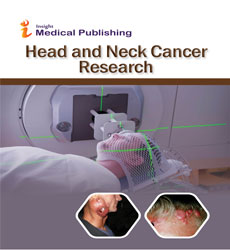Immunotherapy for Allergic-Rhinitis
U Ayfer Yukselen
Gaziantep Children Hospital, Turkey
Received Date: 2022-03-08 | Accepted Date: 2022-03-18 | Published Date: 2022-03-31Abstract
Allergic rhinitis represents a major cause of morbidity that includes interference with usual daily activities and impairment of sleep quality. The majority of patients respond adequately to pharmacotherapy, provided that it is taken properly and regularly. Nevertheless, a substantial proportion of patients report inadequate relief of symptoms despite treatment with intranasal corticosteroids and oral or topical antihistamines. Immunotherapy, both subcutaneous and sublingual, is an effective treatment for adults and children with severe allergic rhinitis that does not respond to conventional pharmacotherapy and allergen avoidance measures. It is also reasonable to offer allergen immunotherapy to those unable to tolerate pharmacotherapy. Selection of patients for immunotherapy requires accurate identification of an underlying allergic trigger through a combination of clinical history and skin and/or blood tests for allergen specific IgE. The efficacy of immunotherapy depends on correct patient selection, the type of allergen and the product chosen for treatment. The benefit of immunotherapy for AR triggered by perennial allergens, particularly HDM, is less well established than with seasonal allergens. The available data also suggests that immunotherapy may offer long-term benefits after its discontinuation, particularly where treatment has been continuously administered for several years.
Open Access Journals
- Aquaculture & Veterinary Science
- Chemistry & Chemical Sciences
- Clinical Sciences
- Engineering
- General Science
- Genetics & Molecular Biology
- Health Care & Nursing
- Immunology & Microbiology
- Materials Science
- Mathematics & Physics
- Medical Sciences
- Neurology & Psychiatry
- Oncology & Cancer Science
- Pharmaceutical Sciences
